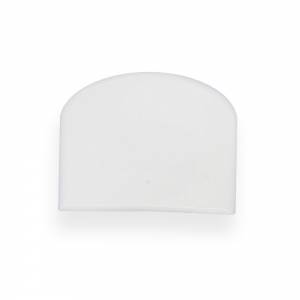Description
Triangular banneton basket, for the second fermentation, so that the bread maintains its shape and don't over-expand. Breads with a visually very attractive finish are also obtained. Different measures to choose from.
They are made with wickers rolled up on themselves. Sprinkling flour over them before placing the dough creates a very sharp spiral pattern that makes the loaves very attractive.
How are the bannetons used?
After kneading your bread dough and letting it carry out the first fermentation, it is time for the bread pieces to be formed.
Sprinkle a generous layer of flour on the banneton with the help of a strainer. It is important to have an even layer and then remove any excess flour that may remain.
The dough is shaped into a loaf or long loaf and placed inside the banneton with the folds facing up. There the bread is allowed to carry out the second fermentation and fill with air.
After that time and with the oven very hot, turn the bread onto the oven tray (also previously preheated), the baking stone or the baker's shovel (which will be lightly floured), so that the fold is at the bottom.
Bread is never baked on the banneton, as this utensil never goes into the oven.
How to clean the bannetons
Bannetons are not washed with water nor with damp cloths. To clean them, the flour must be brushed very well with a stiff bristle brush. And then you have to store them in a dry place.
Round banneton basket, for the second fermentation, so that the bread maintains its shape and don't over-expand. Breads with a visually very attractive finish are also obtained. Different measures to choose from.
They are made with wickers rolled up on themselves. Sprinkling flour over them before placing the dough creates a very sharp spiral pattern that makes the loaves very attractive.
VAT included
SHIPPING included to Spain (peninsula) Other destinations, consult.








